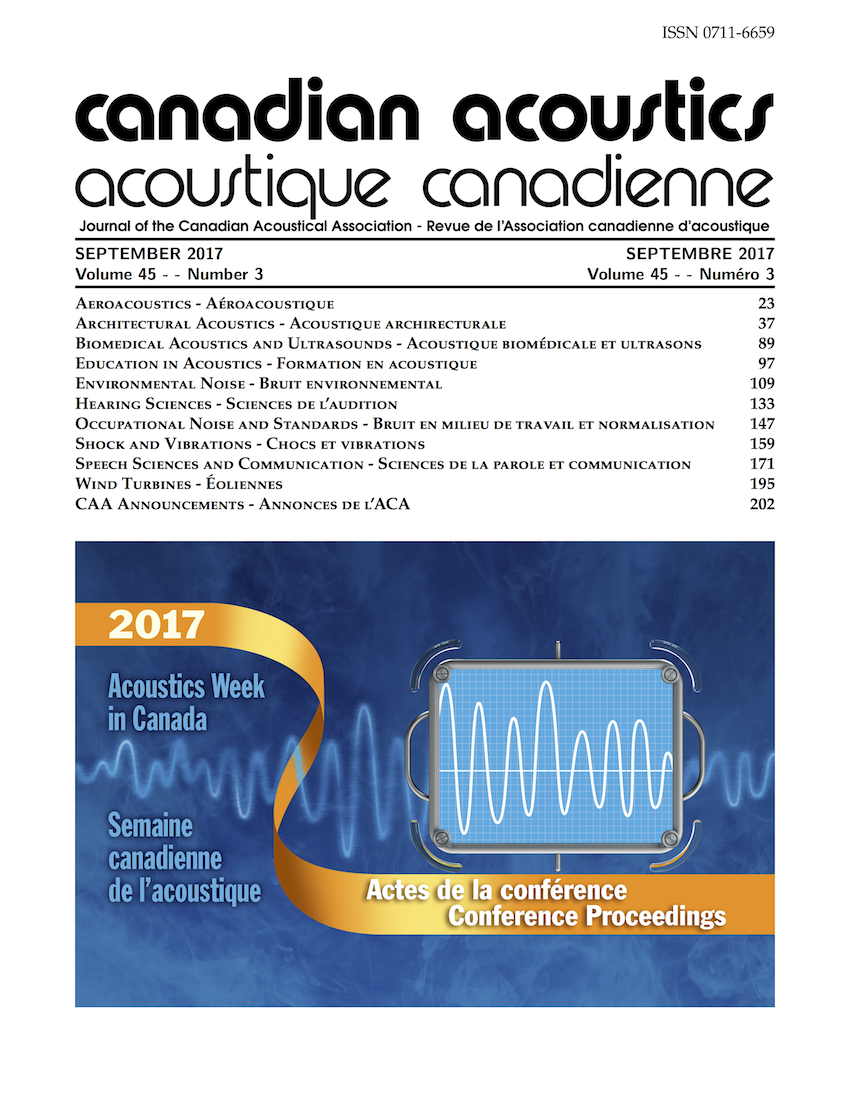DESTRUCTIVE INTERFERENCES CREATED USING ADDITIVE MANUFACTURING
Abstract
Current solutions to absorb sound have technical limitations in being tailored to the specific acoustic requirements of a space. In fact, porous materials show high absorption at higher frequency, while at low frequency, the use of porous materials often require an impracticable significant thickness. Alternatively, resonance absorption mechanisms (either Helmholtz resonators or vibrating panels) show low frequency absorption but in limited frequency ranges. This research focuses on absorbers created using additive manufacture in order to absorb in the low frequency rage using passive destructive interference principles. Additive manufacturing allows for the fabrication of unique pieces with complex and freeform curved geometries. Focusing on geometrical aspects, this paper presents the results of the investigation of an ongoing project to create a large thin transparent panel with absorption above 0.6 below 250 Hz with limited thickness.
Additional Files
Published
How to Cite
Issue
Section
License
Author Licensing Addendum
This Licensing Addendum ("Addendum") is entered into between the undersigned Author(s) and Canadian Acoustics journal published by the Canadian Acoustical Association (hereinafter referred to as the "Publisher"). The Author(s) and the Publisher agree as follows:
-
Retained Rights: The Author(s) retain(s) the following rights:
- The right to reproduce, distribute, and publicly display the Work on the Author's personal website or the website of the Author's institution.
- The right to use the Work in the Author's teaching activities and presentations.
- The right to include the Work in a compilation for the Author's personal use, not for sale.
-
Grant of License: The Author(s) grant(s) to the Publisher a worldwide exclusive license to publish, reproduce, distribute, and display the Work in Canadian Acoustics and any other formats and media deemed appropriate by the Publisher.
-
Attribution: The Publisher agrees to include proper attribution to the Author(s) in all publications and reproductions of the Work.
-
No Conflict: This Addendum is intended to be in harmony with, and not in conflict with, the terms and conditions of the original agreement entered into between the Author(s) and the Publisher.
-
Copyright Clause: Copyright on articles is held by the Author(s). The corresponding Author has the right to grant on behalf of all Authors and does grant on behalf of all Authors, a worldwide exclusive license to the Publisher and its licensees in perpetuity, in all forms, formats, and media (whether known now or created in the future), including but not limited to the rights to publish, reproduce, distribute, display, store, translate, create adaptations, reprints, include within collections, and create summaries, extracts, and/or abstracts of the Contribution.


